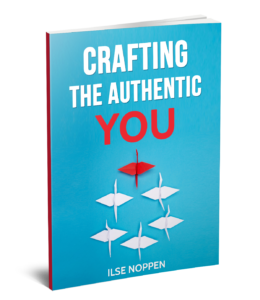You are born with a unique set of talents, your energy givers and your energy drainers. You can’t change that constellation. Though in se you can learn everything, you cannot influence the joy an activity gives you. A talent is about what you love doing, not what you can do.
While knowing your strong talents is essential to craft your career, it is also very important to know your energy drainers and know what to do about them.
An energy drainer is an activity that literally drains your energy: you feel tired after doing it, especially mentally, or you feel like postponing or even dropping the activity altogether. You would happily leave them to someone else.
Ideally you don’t want to work with your energy drainers and would want to give them as little space as possible. At most you give them 25% of your time. However, it is important to see what their role is and what solution you can find. Some of your energy drainers might be crucial for your job, therefore you can’t just ignore them.
Here are some suggestions.
Focus on the outcome you want to achieve
Sandra is a realtor. She loves the sector but sales is a major drain for her. She has colleagues who love sales and come to fabulous results. This initially intimidated her. She learned some of the sales skills but what she learned didn’t really stick because an inner motivation was lacking.
She looked at what she loved doing: understanding people’s needs (empathy), closing the deal, networking, finding solutions, being social. All also essential drives in her job. Using those talents, she not only excelled, but even became one of the top realtors in her company.
Though sales in se is important in Sandra’s job, she focused on her goal, helping people finding their dream house. Using her other talents, she gave less weight and importance to her energy drainer.
Get a structure going
Noor has set up and grown her coaching and training company employing now 15 people. Discussing her talents, we came across an interesting observation. It concerned the combination of entrepreneurship, management and strategic thinking.
Entrepreneurship was clearly one of her major drive. Management was not, and she had recruited someone to take over all operational matters, ensuring the company’s structure and organisation was in line with the strategy and allowed goals to be achieved.
As for strategic thinking, it struck her that she was good at it, and it was even perceived by others as a strength, but she didn’t love it. As the founder and CEO of the company, setting goals and the means to achieve them, taking decisions, were all part of her responsibility. She had set up a structure to ensure it would be taken care of on a weekly basis.
The reality is that we ‘need’ to work with our drainers at times. Being aware of them helps us create a different mindset towards them, a different approach or a ‘OK, let’s get it over with’ but with enough positive energy. Whenever possible, look for yet other solutions such as outsourcing, or giving the tasks to someone else who loves doing it. Noor has combined both approaches successfully.
Find a balance between working wherever essential with your energy drainers and eliminating them. Create a structure and find constructive solutions ensuring your goals are still met.
